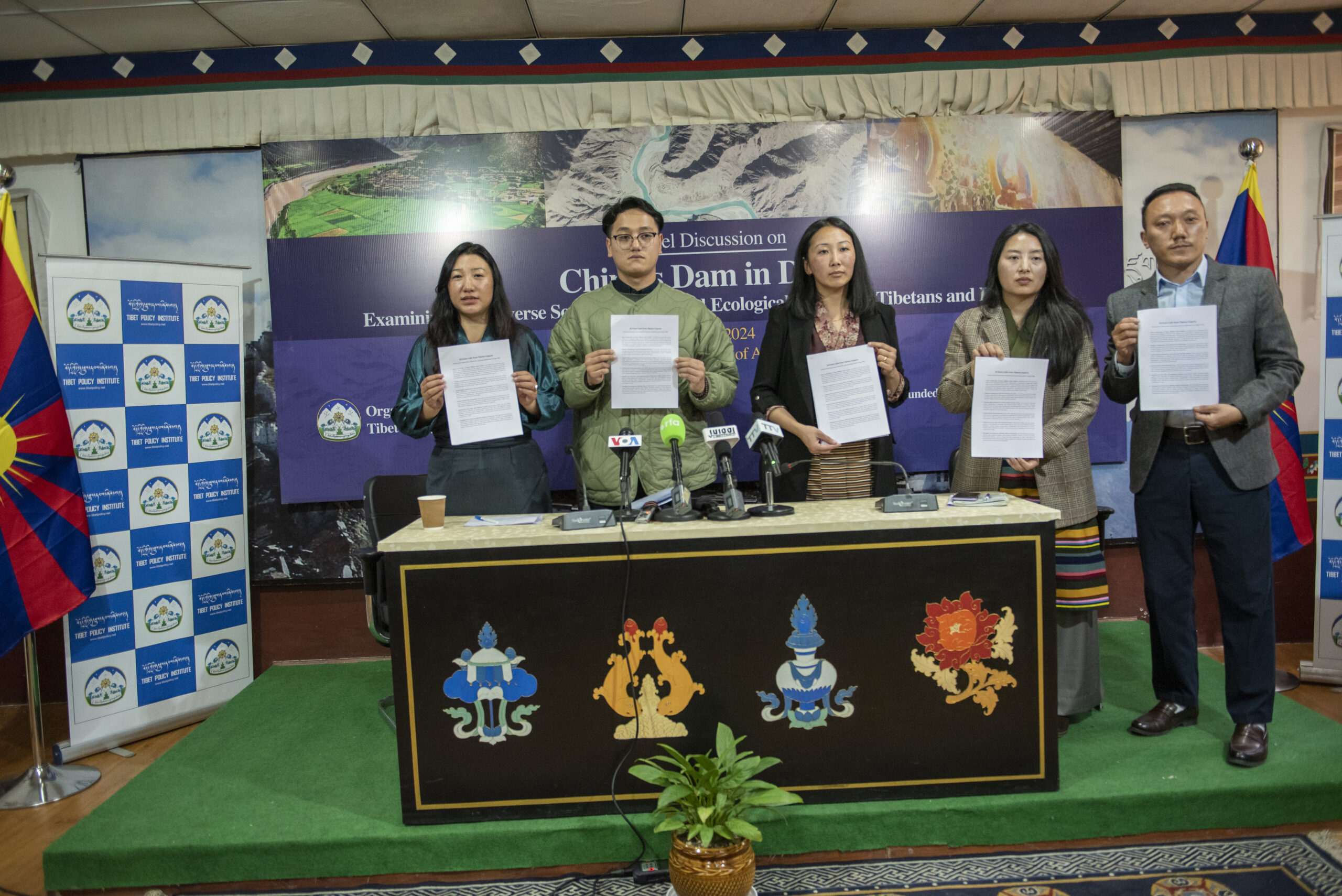
On the occasion of the International Day of Action for Rivers, the Tibet Policy Institute, part of the Central Tibetan Administration, held a significant panel discussion in Dharamshala. The session, titled “China’s Dam in Dege: Assessing the Social, Cultural, and Ecological Impact on Tibetans and Beyond,” brought together experts to discuss the ramifications of Chinese dam projects in Tibet, particularly focusing on the recent construction in Dege.
The event, as reported by Tibet.net, saw participation from distinguished panelists including Dechen Palmo and Dr. Tenzin Lhadon from the Tibet Policy Institute, Ngawang Lungtok from the Tibetan Centre for Human Rights & Democracy, and Dr. Lobsang Yangtso from the International Tibet Network. They addressed an audience comprising various Tibetan NGOs and media representatives, providing insights into the different aspects of the dam’s impact.
Zamlha Tempa Gyaltsen, the Deputy Director of TPI, introduced the topic and the panelists, setting the stage for a deep dive into the socio-economic, human rights, and environmental concerns stemming from the dam construction. Dechen Palmo highlighted the economic repercussions and called for a unified stand against these projects. Ngawang Lungtok brought attention to the human rights issues, and Dr. Lobsang Yangtso elaborated on the environmental threats posed by such endeavors.
ALSO READ: Digital Leap for Tibetan Culture: Launch of Tibetan Digital Library Conference
The discussion highlighted the multifaceted challenges that these dams present, not only to the local Tibetan communities but also to the broader ecological system and neighboring countries. The panel concluded with a ten-point call to action aimed at halting the construction of dams without local consent, enhancing transparency, and increasing public involvement in environmental decision-making.
The call to action further advocates for comprehensive assessments of seismic risks, adherence to Free, Prior, and Informed Consent principles, and disengagement from businesses contributing to environmental degradation in Tibet. It also urges China to ratify human rights treaties and recognize the ecological importance of the Tibetan Plateau.
This panel discussion underscores the critical need for global awareness and action against the environmental and social injustices perpetrated by dam constructions in Tibetan regions. As the dialogue continues, the Tibet Policy Institute aims to foster a broader understanding and support for the protection of Tibet’s natural heritage and the rights of its people.






